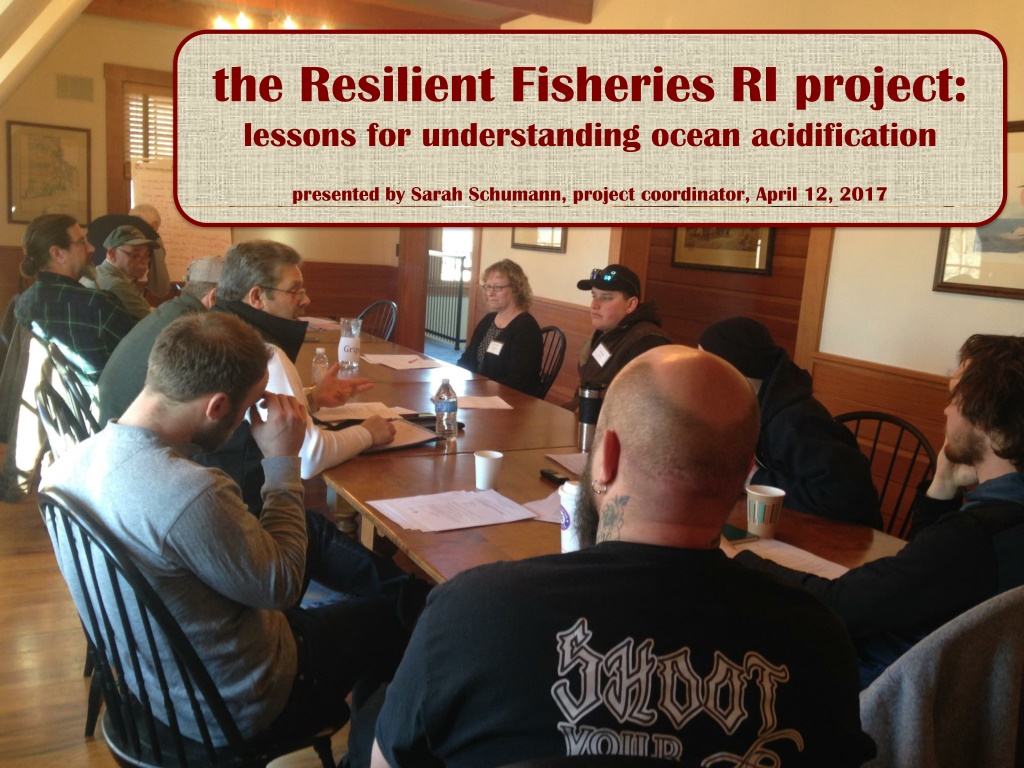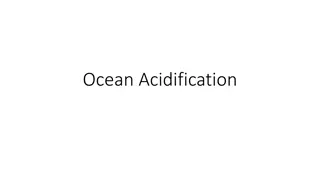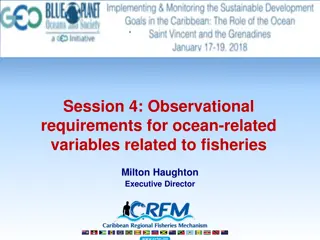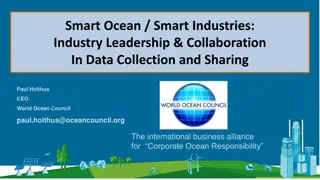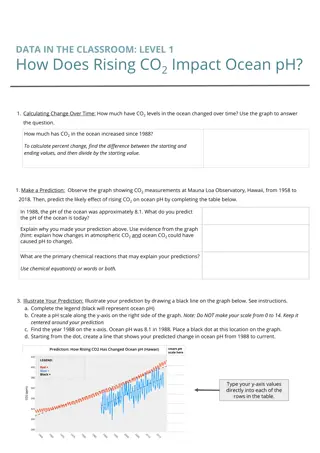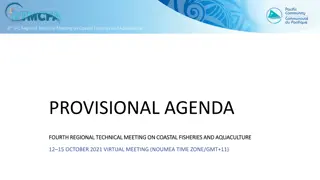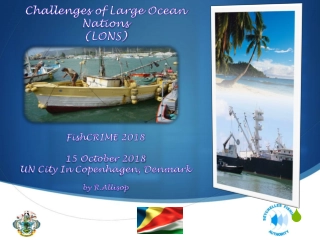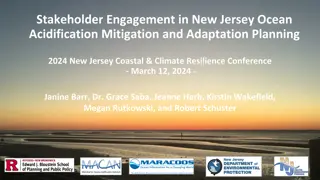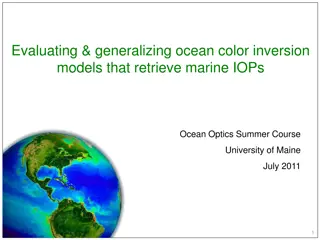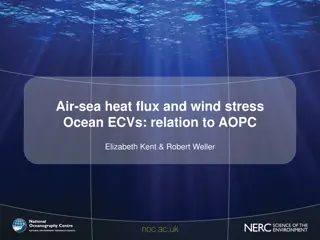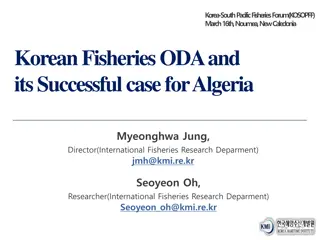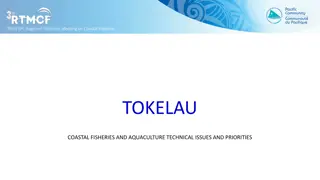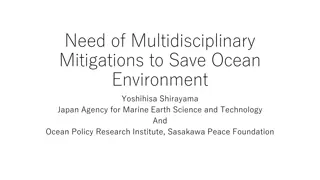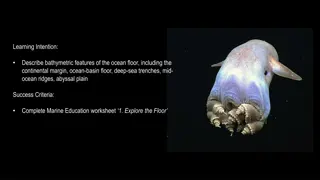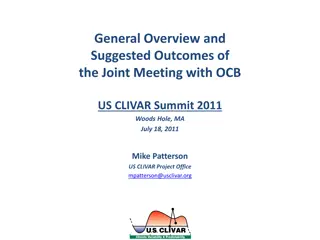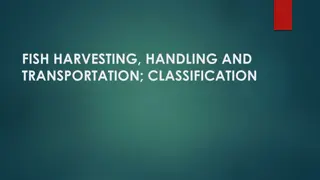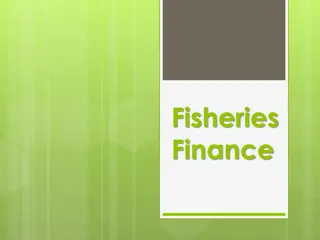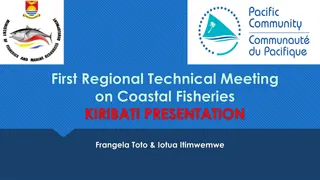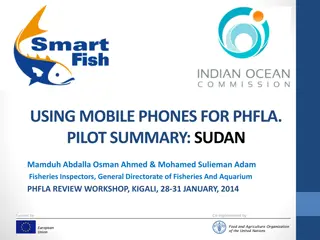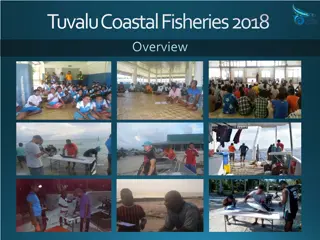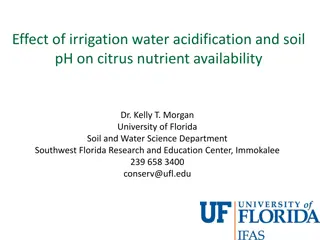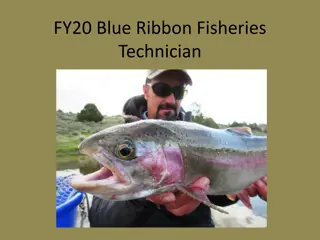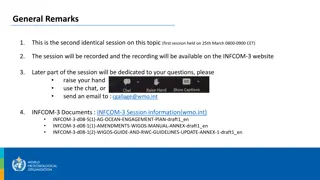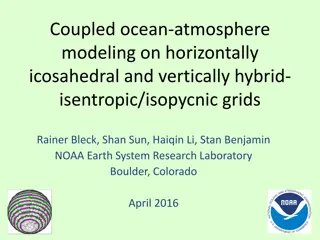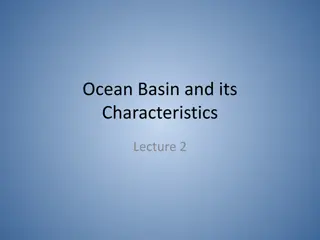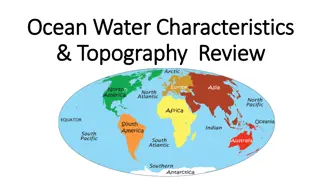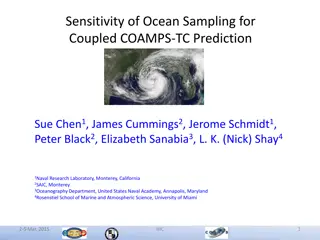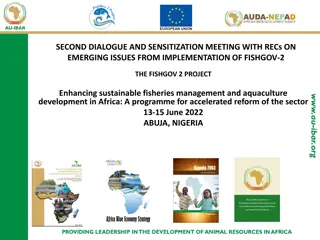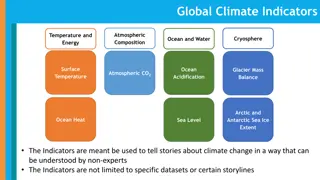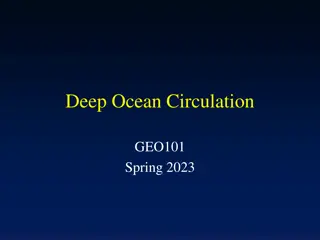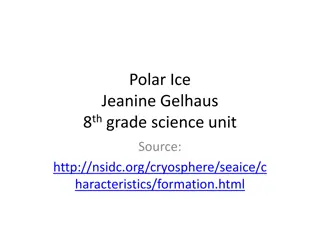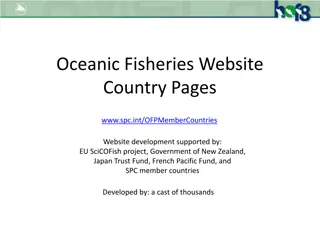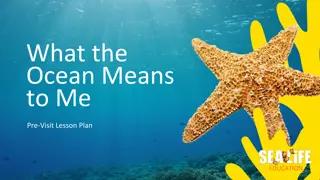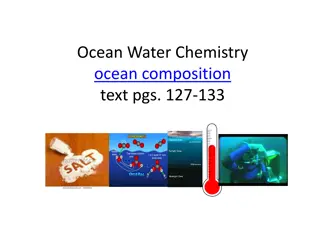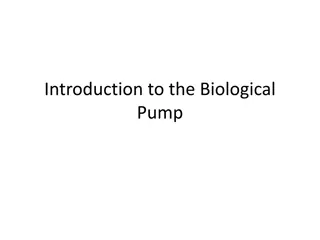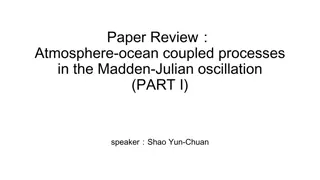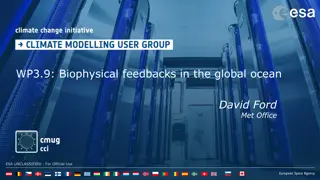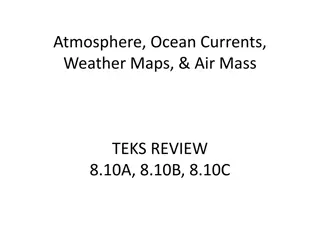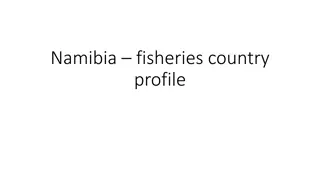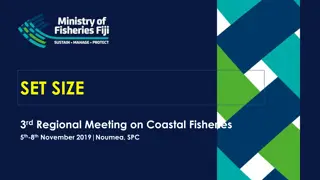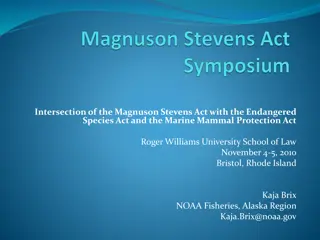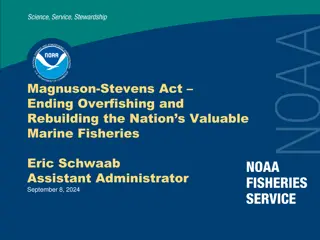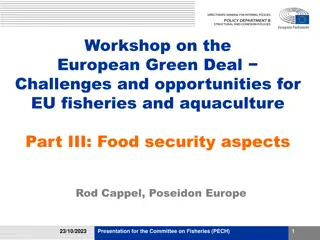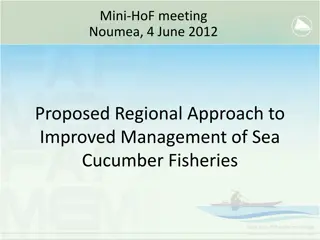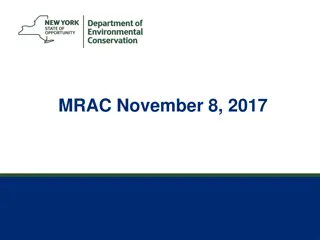The Resilient Fisheries RI Project: Insights on Ocean Acidification by Sarah Schumann
The Resilient Fisheries RI Project, led by project coordinator Sarah Schumann, aims to understand ocean acidification's impact on Rhode Island's fishing industry. Through participatory action research and social learning, the project explores climate change and adaptive capacity within the commercial fishing sector. The team conducted interviews, surveys, and discussions to assess awareness and concerns regarding ocean acidification among industry stakeholders. Key findings reflect varied levels of understanding and concern, highlighting the need for continued education and adaptation strategies in the face of environmental changes.
Download Presentation

Please find below an Image/Link to download the presentation.
The content on the website is provided AS IS for your information and personal use only. It may not be sold, licensed, or shared on other websites without obtaining consent from the author. Download presentation by click this link. If you encounter any issues during the download, it is possible that the publisher has removed the file from their server.
E N D
Presentation Transcript
the Resilient Fisheries RI project: lessons for understanding ocean acidification presented by Sarah Schumann, project coordinator, April 12, 2017
Resilient Fisheries RI: What is it? A project by, with, and for RI s commercial fishing industry Participatory action research Social learning Focus started with climate change adaptation, but quickly grew Environmental change: you don t always know the cause Socioeconomic factors condition adaptive capacity Products: one or more reports Expected issue date: Fall 2017 Consensus document(s)
Whos who Project Coordinator: Sarah Schumann Fiscal Sponsor/Admin Team: RI Natural History Survey Project Oversight Team: Alan Glidden (fish trap, Point Judith) Denny Ingram (inshore lobster, Newport) Katie Almeida (Town Dock policy analyst) Katie Eagan (mixed bay fisheries, Bristol) Ken Booth (rod and reel) Jeff Grant (shellfish, Warwick) Mike Marchetti (scallops, Point Judith) Norbert Stamps (offshore lobster, Point Judith) Rodman Sykes (dragger, Point Judith) Tom LaFazia (Narragansett Bay Lobsters)
Step 1: Interviews [Winter-Summer 2016] 50 one-on-one conversations Topics: Changes you re seeing How are they affecting you? How are you adapting? Are there things preventing you from adapting? What does it mean to be resilient? How resilient is RI s fishing industry?
Survey questions on OA [1= low agreement; 5 = high agreement] I am familiar with the phenomenon known as ocean acidification. [N=33]
Survey questions on OA [1= low agreement; 5 = high agreement] I am concerned about the phenomenon known as ocean acidification. [N=18]
Survey questions on OA [1= low agreement; 5 = high agreement] I think I ll see the effects of ocean acidification in my lifetime. [N=17]
Drivers of Vulnerability [1= low concern; 5 = high concern] Ocean acidification (N=24)
Drivers of Vulnerability [1= low concern; 5 = high concern] Median 5 5 5 5 4 4 4 3 3 3 3 3 Driver Out-migration or consolidation of federal fishing permits Low entry of new fishermen: Not enough "young blood" Catch regulations Stock assessment science Ocean development, such as energy infrastructure Price of your catch / seafood Waterfront gentrification Warming water temperatures Ocean acidification Price of fuel Low market demand for your catch Conflicts/competition with recreational fishing industry Conflicts/competition within/between sectors of the commercial fishing industry Conflicts/competition with aquaculture 2 1
Step 1: Takeaways Most fishermen know little about OA Those who are more informed about it are more concerned. Unlike the effects of temperature change, the effects of OA are not something that fishermen are directly experiencing or seeing on the water. Concern about OA is outranked by concerns about fisheries science and management and socioeconomic challenges facing the industry.
Step 2: Workshops [Winter 2016/2017]
Step 2: Workshops [Winter 2016/2107] 1. Warming waters (12/7) 2. Ocean acidification Ocean (12/13) 3. Ocean acidification Bay (12/14) 4. Narragansett Bay ecosystem change (12/20) 5. Next generation of fishermen (1/9) 6. Changes in seaweed ecology (1/18) 7. Socio-economic vulnerability (1/23) 8. Squid in a changing climate (1/30) 9. Black sea bass explosion (2/7) 10.Diversity vs. specialization (2/13) All-day Scenarios Planning Conference (2/21)
Workshops 2 & 3: OA Guest: Nathan Rebuck (NOAA) What causes OA and CA? What are the effects of OA and CA? When can we expect them to occur? Which species will be hit the hardest? How serious will the impacts be? How can we adapt, to lessen the impacts? How can fisheries management take these changes into account? What restoration techniques can we apply to mitigate impacts to ecosystems?
Workshop 2& 3: Takeaways Effects offshore are very gradual Inshore, we re already living with it Only solution offshore: reduce carbon emissions Inshore, there s more we can do Fishermen want research on pros and cons of nitrogen removal practices Support for green restoration initiatives: shellfish stocking*, habitat enhancement, plant-based nitrogen removal, shell recycling initiatives* *regulatory barriers?
Workshop 4: Narragansett Bay Ecosystem Change Fishermen are seeing a LOT of changes, asking a LOT of questions Base of the food chain: less plankton Fouling organisms: fewer barnacles, hydroids Disappearance of kelp, rockweed Increase in lobster shell disease Cumulative stressors, death by 1,000 cuts Lots of noise hard to link cause and effect
Workshop 4: Takeaways Major concern over methods used in wastewater treatment Research agenda: need to understand ecological effects of: (1) byproducts of chemicals used to kill pathogens (2) nitrogen reductions since 2003 URI conference Fall 2017? Resilient Fisheries RI project gathering fine-scale observations on ecosystem change in the Bay
Workshop 6: Changes in the Seaweed Community Guest: Lindsey Green (URI CELS) Narragansett Bay: disappearance of kelp, rockweed Outbreaks of nuisance seaweed a growing problem for fishermen South of Block Island: red weed clogging gillnets in 2014, 2015 Narragansett Bay: red weed blooms, Desmarestia blooms, slime What causes these blooms? Role of OA theorized
Workshop 6: Takeaways Summer 2017: fishermen will send samples of nuisance seaweed to Lindsey Bloom to identify Start collecting detailed information on timing and whereabouts of blooms Knowing what, where, and when can help pinpoint cause Adaptation: information-sharing among fishermen, and between fishermen and researchers
Overarching themes Nothing happens in a vacuum. Every change is experienced in concert with many other interacting changes and pressures
Overarching themes Fisheries are socio-ecological systems. Solutions need to be systems-oriented too. Solutions that tackle only part of a problem are destined to fail.
Overarching themes Resilience means: addressing root causes of environmental change where we can
Overarching themes Resilience means: synching fisheries management with a changing climate
Overarching themes Resilience means: giving fishermen the flexibility to practice autonomous adaptation
Overarching themes Resilience means: and working towards a more robust and proactive fishing industry that can withstand challenges.
Overarching themes Now is the time to think about our future.
Resilient Fisheries RI www.ResilientFisheriesRI.org Sarah Schumann schumannsarah@gmail.com (401)297-6273
